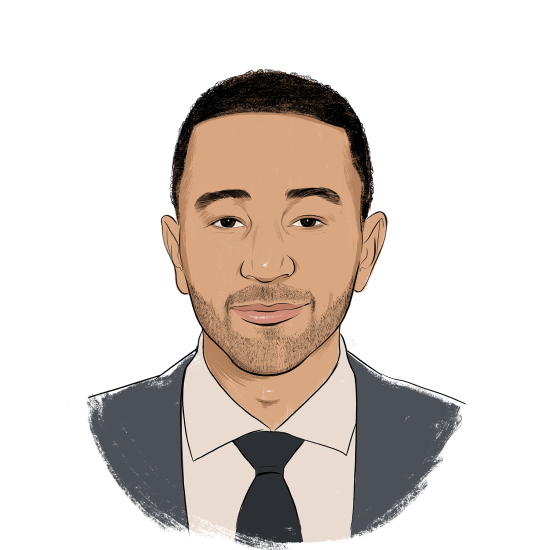
'We need to see each other in all of our humanity'
We’re living in a moment when the challenges facing black folks are becoming more visible. With the introduction of cell-phone footage and other video, the entire nation can now see for themselves what black folks have been talking about for years and years. We can all see and feel the pain of injustice and the consequences of negative stereotypes that color far too many of our interactions with the criminal justice system and many other aspects of society.
These issues are critical to us, to our families and communities. But no black person wants to be thought of solely on the basis of how they interact with the law or police or prison. No one wants to be constantly seen as a problem to be solved. It’s a conundrum. I wasn’t even sure I wanted to agree to write this column. You want to raise these issues; you don’t want to be synonymous with them. But to be silent may be easier, but it doesn’t fix anything. And there’s plenty to fix.
[time-brightcove not-tgx=”true”]
Obviously, I’m very fortunate and doing very well, but the average black person still faces disadvantage (call it a “Black Tax”) at every turn. When police are more likely to pull you over or pull the trigger because they read danger and violence into our skin. When our résumés get turned away because the applicant’s name sounds black. When prospective black tenants or home buyers are turned away in person or on sites like Airbnb simply because of our skin color. When we get paid less for doing the same work. Every scientific test, from doll tests to police simulations, shows that if you know someone is black, you treat them worse.
And even if everyone stopped discriminating today, too many of our communities are still battling the legacy of decades of housing segregation. You see it in the black-white wealth gap and the persistent problems experienced by those living in areas with high concentrations of poverty. These neighborhoods were created through deliberately discriminatory housing policies and lending practices and are almost always the same areas facing the most problems with crime, conflicts with the police, and the lack of quality schools and other resources.
To be clear, this isn’t the whole of the black experience in America as some running for president might suggest. But it’s enough of an issue that it should concern all of us.
But how do we fix it? There has been genuine progress, and there will be more. Some of it will be through politics and policy. We have to desegregate our schools, which improves everyone’s grades—black and white, wealthy and poor—and figure out a way to reduce mass incarceration by reducing sentences and electing prosecutors who represent the needs of their communities rather than seeking the harshest punishments available. We have to have progressive housing policies that integrate our neighborhoods and reduce the high concentrations of poverty in any given area.
But part of it is a change of heart. How do we change hearts? Even understanding all of our history, it’s hard for me to understand how anyone can still be racist. How can you assume inferiority and skin color are tied together? To use an obvious example, just look at our president, and his wife, and his family. They’re a stellar example of family values, of the power of education, of black excellence and eloquence and grace under fire, under racism—under all sorts of adverse conditions. Through partisan battles, they’ve carried out their service to the country with dignity. If you can’t understand that there’s so much beauty in our community and so much excellence in our community, and all you see is negativity when you think of us, then I don’t know what I can do for you.
But I will do my best. As an artist and producer, part of my job is to tell stories and to empower diverse storytellers. I want to spread love and light. Art has the power to build connection and empathy. We need to see each other in all of our humanity. You can’t love your neighbor across the street or across town if you’re constantly in fear of confronting the unknown. Hopefully all of us will learn to open our eyes, empathize and join together despite the things that might divide us.
Legend is a singer-songwriter and an executive producer of Underground
TIME Ideas hosts the world's leading voices, providing commentary on events in news, society, and culture. We welcome outside contributions. Opinions expressed do not necessarily reflect the views of TIME editors.